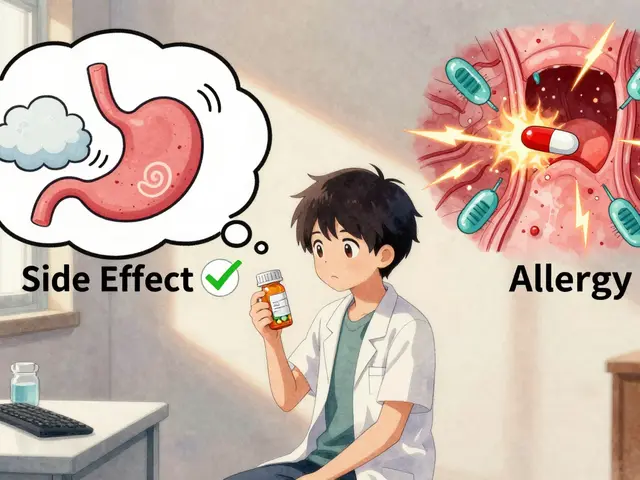The Benefits of Misoprostol in Cervical Ripening and Labor Induction
May 9 2023QT Prolonging Agents – What They Are and How to Manage the Risk
If you’ve ever heard a doctor mention “QT interval” and felt lost, you’re not alone. The QT interval is just a slice of time on an ECG that shows how long your heart’s electrical system takes to reset after each beat. Some medicines stretch this period more than they should – we call those QT prolonging agents. When the stretch gets too big, it can trigger a scary rhythm problem called torsades de pointes, which can feel like a flutter or even cause fainting.
Common Drugs That Prolong the QT Interval
A lot of everyday meds fall into this group. Antibiotics such as moxifloxacin and levofloxacin are big culprits, especially if you’re taking them for a lung infection. Anti‑arrhythmics like sotalol and amiodarone were designed to help the heart but can backfire if dosed wrong. Many psychiatric drugs – think certain antipsychotics (ziprasidone, haloperidol) and antidepressants (citalopram, escitalopram) – also have a QT‑stretching effect. Even some over‑the‑counter allergy pills with diphenhydramine can add to the risk, especially when mixed with other QT agents.
It’s not just prescription drugs; herbal supplements and weight‑loss products sometimes hide QT‑prolonging ingredients too. The key is that any medication that messes with potassium or calcium channels in heart cells can tip the balance.
Practical Steps to Reduce Your Risk
First, always tell your pharmacist and doctor about every drug you’re taking – prescription, OTC, and supplements. A quick check of a drug interaction database can catch hidden combos before they become dangerous. If you have low potassium or magnesium (common after diarrhea or certain diuretics), ask for a blood test; correcting those levels often lowers the QT risk.
Second, get an ECG if your doctor starts you on a known QT‑prolonging agent, especially if you’re older, have heart disease, or take more than one risky drug. A baseline reading helps track any changes. Some clinics even offer a follow‑up ECG after a few weeks of therapy.
Third, watch for warning signs: unexplained dizziness, fainting spells, or a feeling like your heart is skipping beats. If any of those pop up, seek medical help right away – an urgent ECG can catch torsades early.
Lastly, lifestyle tweaks matter. Stay hydrated, keep electrolyte‑rich foods in your diet (bananas, leafy greens, nuts), and avoid excessive alcohol or stimulants like caffeine if you’re on a QT‑stretching med.
Bottom line: QT prolonging agents are common, but with a little awareness you can stay safe. Keep an open conversation with your healthcare team, know the meds that could affect your heart rhythm, and act fast if something feels off. Your heart will thank you for it.
 23 May
23 May
Imipramine and Heart Medications: What to Watch For With Beta-Blockers, Antiarrhythmics, and QT-Prolonging Drugs
This guide explores how imipramine, a common antidepressant, can dangerously interact with heart medications like beta-blockers, antiarrhythmics, and QT-prolonging drugs. Learn why these combinations can trigger serious side effects for your heart, what symptoms to look out for, and how to work with your doctor to avoid risky overlaps. Get clear explanations on common drugs and interaction risks in everyday language, along with practical tips if you or someone you care about takes these medications.
Read More...




